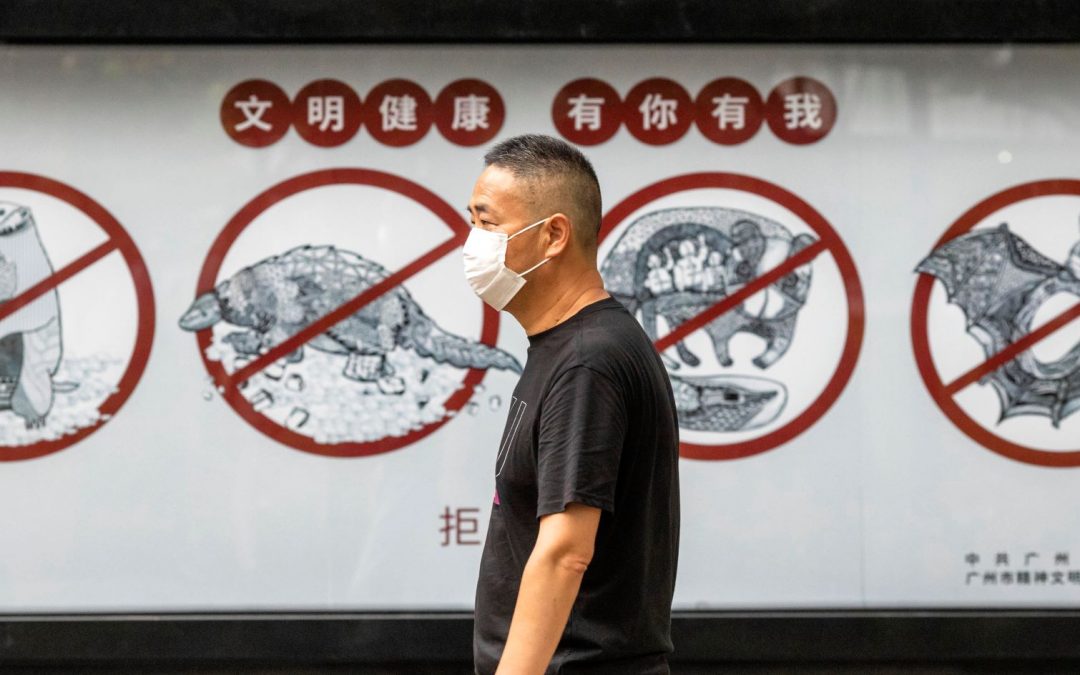
by Sarah Edmonds | 20 Nov 2020 | Educators' Catalog, Health and Wellness
Experts had foreseen a coronavirus pandemic, but COVID-19 has still inflicted untold damage on the world. Will we draw the right lessons this time? A man walks past a poster warning that consuming wildlife is illegal, in Guangzhou, China, 25 May 2020. (EPA-EFE/ALEX...
The coronavirus has given us mountains of data and an escalating mortality toll. News Decoder correspondent Sarah Edmonds moves beyond real-time developments and the numbers to ask world-class experts — a lead investigator for one of the top vaccine trials, a research fellow at Cambridge University and an official at the World Health Organization — what lessons the world will draw from the pandemic. Often, solid reporting boils down to asking simple questions and then finding the right people for answers. Edmonds follows that script in her handling of a complex topic. A model for our students.
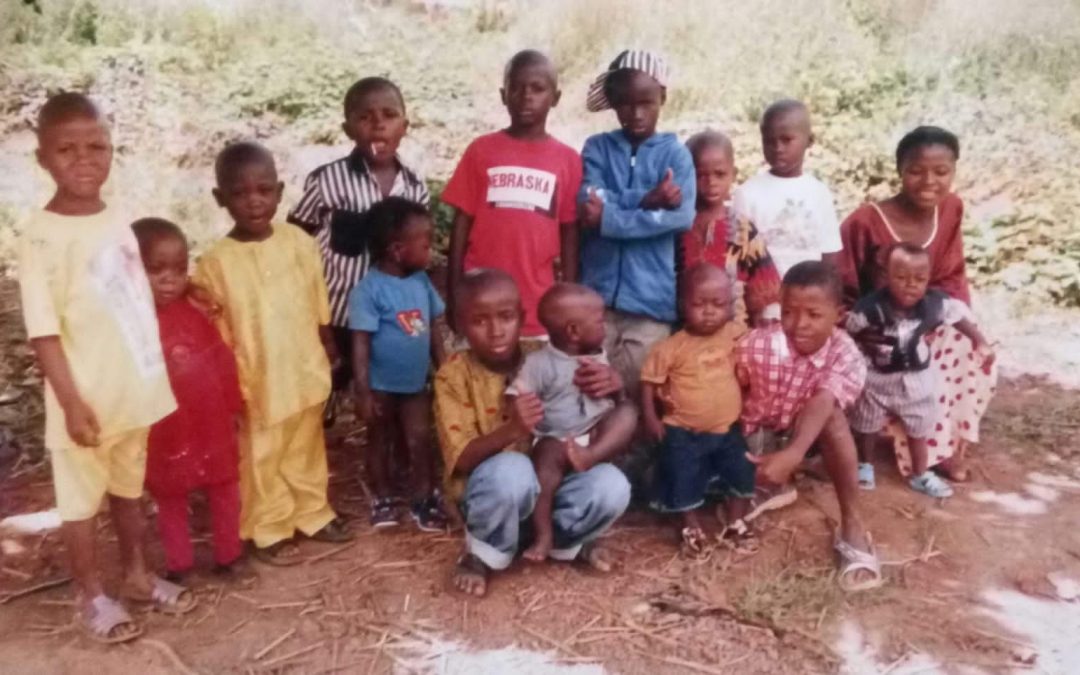
by Varlee S Fofana | 10 Nov 2020 | Africa, African Leadership Academy, Contest winners, Discovery, Educators' Catalog, Identity, Personal Reflections, Refugees, Student Posts, Youth Voices
My family fled civil war in Liberia to a refugee camp in Guinea in West Africa. I learned the power of resilience and the value of diversity. The author, in white next to the woman on the right, at the Kouankan refugee camp in Guinea This story won first prize in News...
News Decoder’s goal is to create a global community, and Varlee Fofana has added his unique voice to the conversation with an essay about growing up in a refugee camp in Guinea. Not many News Decoder students have had to flee civil war as Fofana did, yet many play football, as the author did to connect with other refugee children. Gathering wood, plowing farmland or selling kerosene might not be common chores for most News Decoder students, but they, too, face challenges. Ask your class to read Fofana’s story and then, in up to 600 words, describe a personal experience that shaped their life and character. Encourage them to follow Fofana’s example by using simple words and an unassuming tone to draw readers into their world.
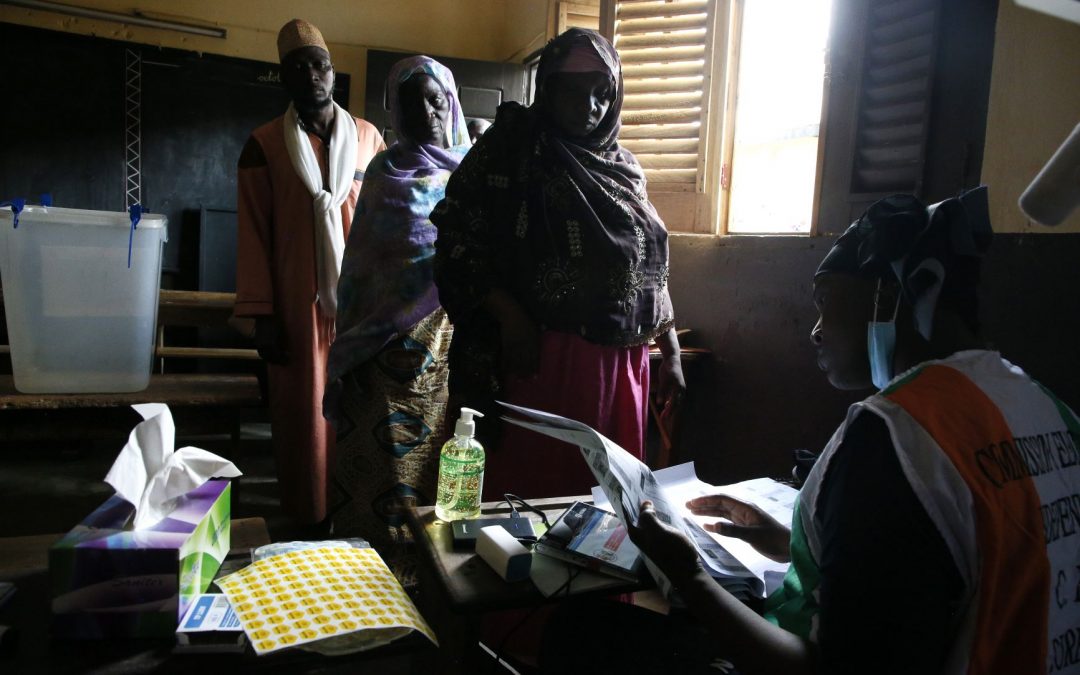
by Adayé Sosthène Yvan N'guettia | 2 Nov 2020 | Africa, African Leadership Academy, Contest winners, Educators' Catalog, Government, Student Posts, Youth Voices
For years, Ivory Coast has been split politically and at times torn by outbursts of violence. Youth are working for peace in the West African nation. Voters at a polling station during the first round of Côte d’Ivoire’s presidential election in Abidjan, 31...
Ivory Coast has a complex political story, but Adayé Sosthène Yvan N’guettia keeps it simple in his story about youth working for peace in the West African nation. Many young people are upset over the state of the world that they will inherit, but N’guettia shows initiative by interviewing three activists toiling for change in Côte d’Ivoire. He listens and offers telling quotes, using a deft hand to drive home his message. Growing up is about discovering the world, and some students — N’guettia among them — see the challenge as a learning adventure. Ask your class to read N’guettia’s story, interview three activists and, using the activists’ words, summarize what they’ve learned.
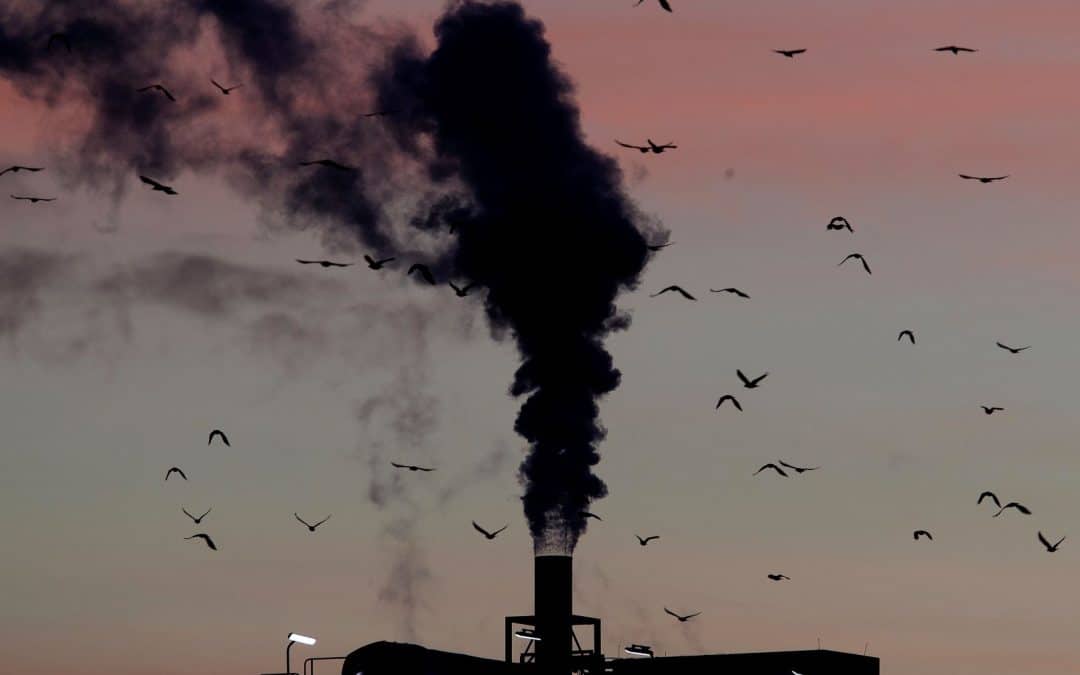
by Alister Doyle | 28 Oct 2020 | Climate change, Decoders, Educators' Catalog, Environment
Without a push to protect nature, Earth faces the worst extinction crisis since dinosaurs were wiped out. A summit next year offers a dwindling chance. Birds fly past a smoking factory chimney in Ludwigshafen, Germany, 4 December 2018 (AP Photo/Michael Probst) Among...
Alister’s Doyle tour d’horizon of the state of biodiversity draws on years of study and probes a range of primary sources. His article is a lesson in how to pack a mass of material into a tidy, readable story that eschews jargon. Doyle’s article keeps its sight on the future: the challenges, the stakes and the calendar. This decoder is an invitation to take stock of our countries’ commitments to preserving our planet, and offers numerous entry points for classroom discussion of issues that will define students’ future.
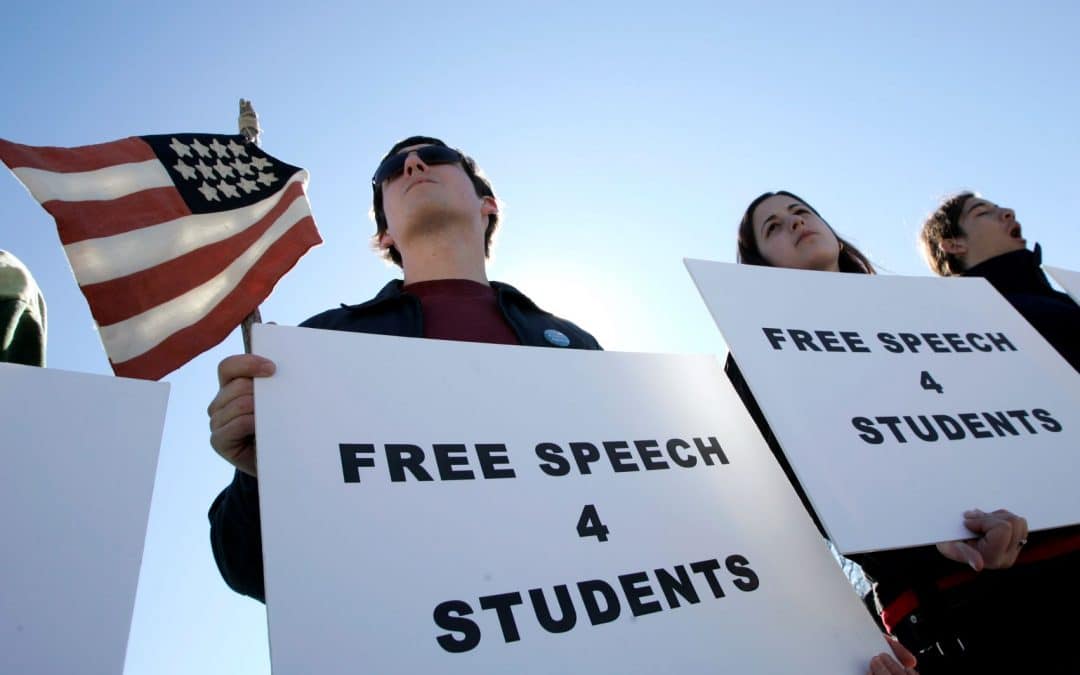
by Lucy Jaffee | 27 Oct 2020 | Contest winners, Educators' Catalog, Human Rights, La Jolla Country Day School, Student Posts, Youth Voices
A U.S. school district wants the Supreme Court to overturn a landmark free speech case and let it punish a student for criticizing her school online. Students protest for the right to free speech outside the Supreme Court in Washington, DC, 19 March 2007. (AP...
Lucy Jaffee of La Jolla Country Day School tackled a complicated topic — a court case involving a student’s freedom of speech and social media — by interviewing two experts, including the foremost authority on the U.S. First Amendment, Floyd Abrams. The lesson: If you put effort into understanding an issue, experts will be glad to speak to you. Students should contact experts because they will offer unique insights and help answer the question, “What next?”
The case Jaffee’s article focuses on lends itself to classroom discussion because it engages a matter of great interest to students. While students may instinctively side with the young woman whose Snapchat post triggered the controversy, there may be other off-campus outbursts on social media — Holocaust denial, racist language — that they might like to see sanctioned. Like so much in life, First Amendment issues often lie in the gray zone.
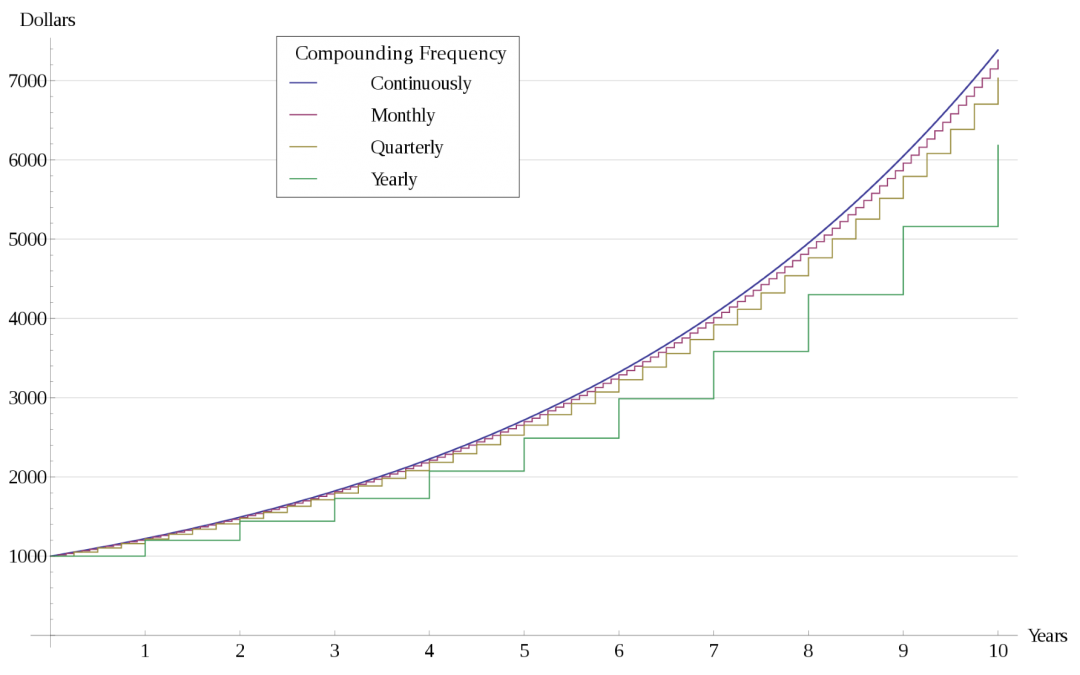
by Alan Wheatley | 19 Oct 2020 | Decoders, Donald Trump, Economy, Educators' Catalog, Joe Biden, World
On any day, the stock market can go up or down. But in the long run, a young person cannot afford to ignore the chance to invest in company shares. The effect of compound interest, with an initial investment of $1,000 and 20% annual interest, compounded at various...
Alan Wheatley’s article on stock markets touches on concepts of tremendous long-term importance to young people, such as compounded interest and interest rates. Wheatley has decades of experience covering international finance, and it shows as he connects investing fundamentals with economic growth and the current U.S. political situation. The article finishes with questions that can be taken up in a wide range of classrooms: Who would be better for stock markets — Trump or Biden? If you have $1,000, should you spend or save it? And why is Wall Street near a record high during the coronavirus pandemic? With Wheatley explaining matters, there’s no reason why economics should be “the dismal science”!
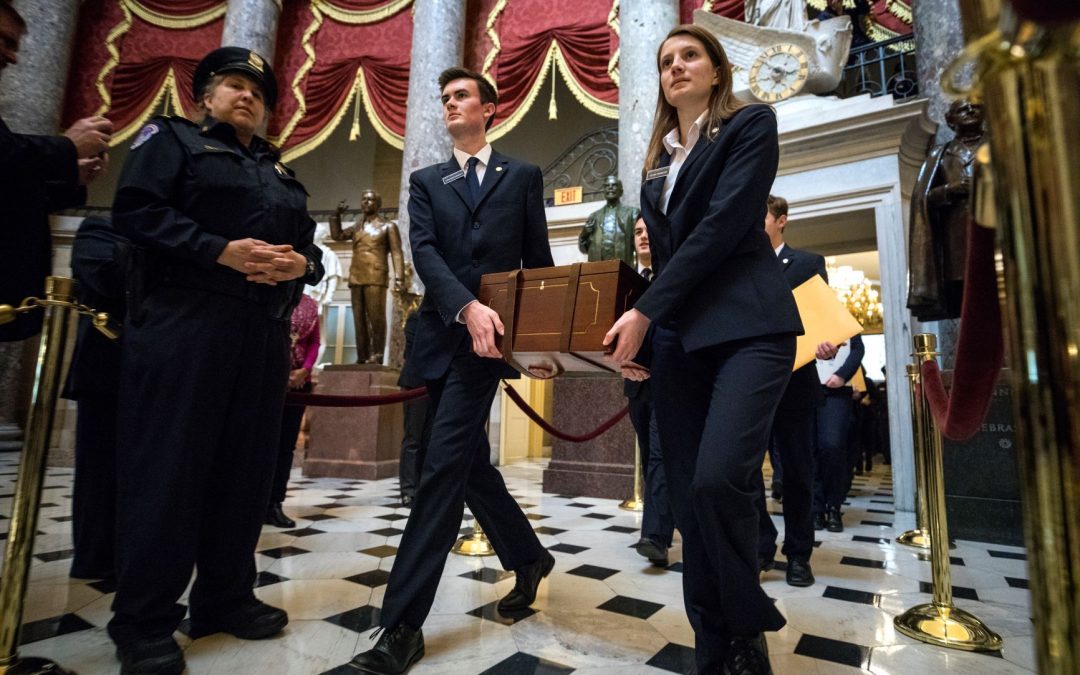
by Bernd Debusmann | 14 Oct 2020 | Americas, Decoders, Donald Trump, Educators' Catalog, Future of Democracy, Government, Joe Biden, Politics, World
A candidate can win the U.S. presidency without winning the most votes. Americans don’t like the Electoral College, but it seems here to stay. Senate pages carry presidential electoral ballots to a joint session of Congress, Washington, DC, 6 January 2017....
To understand our world of today, students need to know where we came from. But history in a vacuum can be a turnoff if it’s not connected to current events. Bernd Debusmann’s decoder offers a historical look at the curious institution of the U.S. Electoral College, while connecting the dots to today’s political events in that country. The article links to documents that open the door to further study and poses three questions at the end that are fodder for classroom discussion.
by Jim Wolf | 23 Sep 2020 | China, Conflict, Decoders, Donald Trump, Educators' Catalog, United States, World
They are the world’s two most powerful economies, deeply interlocked. But China and the U.S. are increasingly at odds — with vast implications. A Taiwanese Air Force fighter in the foreground flies on the flank of a Chinese bomber as they pass near Taiwan, 10...
The relationship between China and the United States will have a profound impact on the lives of today’s students. In his examination of the bilateral relationship, Jim Wolf reviews the fraught history between China and the West, and looks at the two nations’ current leaders and how their agendas are radically at odds. Wolf eschews the bias that can creep into reporting on China by Western correspondents. This tour d’horizon offers students a starting point for deeper examination of the forces — economic, military, geographic, political — that will shape the world they will inherit.
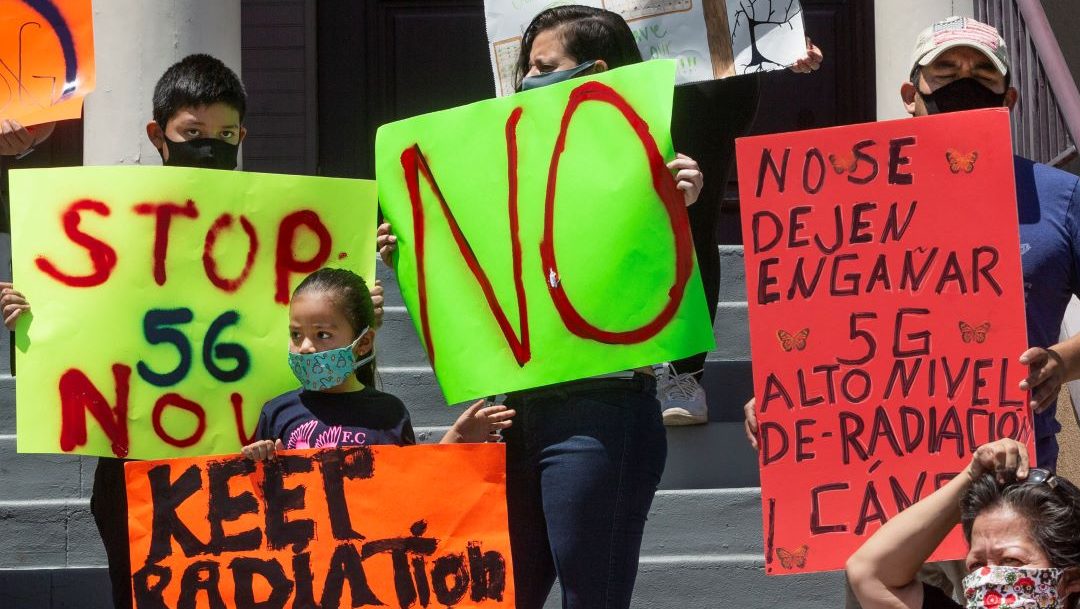
by Sarah Edmonds | 1 Sep 2020 | Donald Trump, Educators' Catalog, Health and Wellness, World
They’ve been around for a long time and flourish in a crisis. Conspiracy theories may seem absurd and harmless to some — but they can do damage. Activists demonstrate against 4G/5G cell towers in Los Angeles, California, 2 May 2020. (AP Photo/Damian...
Like fake news, conspiracy theories abound in today’s polarized political world. Sarah Edmonds shows that they have been around for a long time and thrive in times of crisis such as the coronavirus pandemic. In an age when facts and science are under attack, how can a student know what to believe in? Should we simply dismiss those who perpetrate conspiracy theories — or engage with them? Edmonds interviewed numerous experts for her article and skilfully weaved in their quotes — a good example for student writers. Teachers of subjects from Science to Politics can use Edmonds’s story to encourage students to suspend their prejudices and push themselves to see contrasting viewpoints.
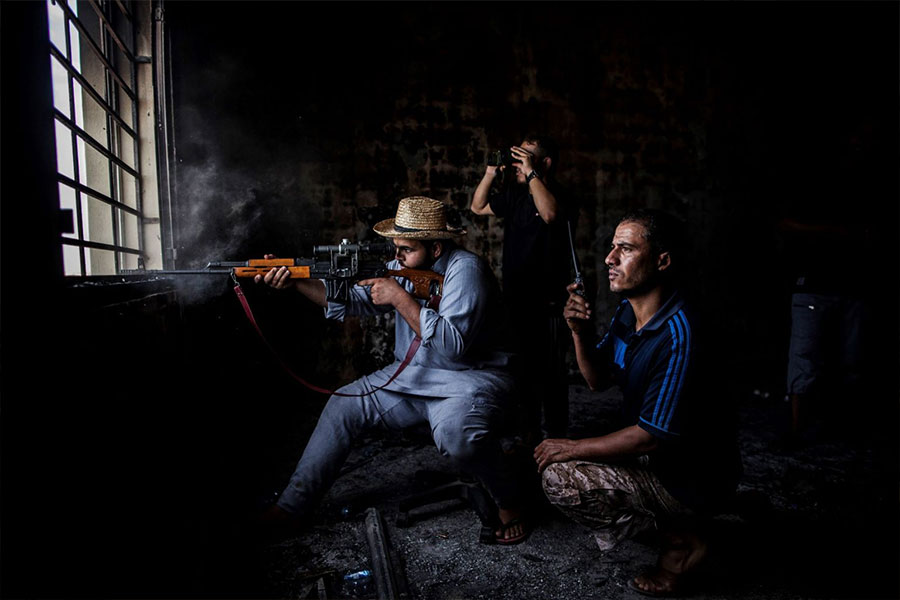
by Marouane El Bahraoui | 12 Aug 2020 | Africa, African Leadership Academy, Educators' Catalog, Student Posts, Youth Voices
Once ruled with an iron fist by a dictator, oil-rich Libya is now ravaged by war. With foreign powers meddling, a political solution is badly needed. A sniper fires towards Islamic State militant positions in Sirte, Libya, 21 September 2016. (AP Photo/Manu Brabo)...
The author, Marouane El Bahraoui, is a Student Ambassador at the African Leadership Academy, a News Decoder partner school. He spent seven months researching Libya, working closely with News Decoder editors to sharpen his focus and add authority to his reporting. What started as an incipient interest in the North African country matured into a nuanced view of a highly complex geopolitical situation. El Bahraoui’s story caught the admiring eye of the U.S. ambassador to Libya, who contacted the young author to chat about Libya and Morocco, El Bahraoui’s home country. “Who thought that a U.S. ambassador would read my article?” El Bahraoui said. This story shows the kind of potent reporting that a determined and curious student in our network can produce for a global audience.









